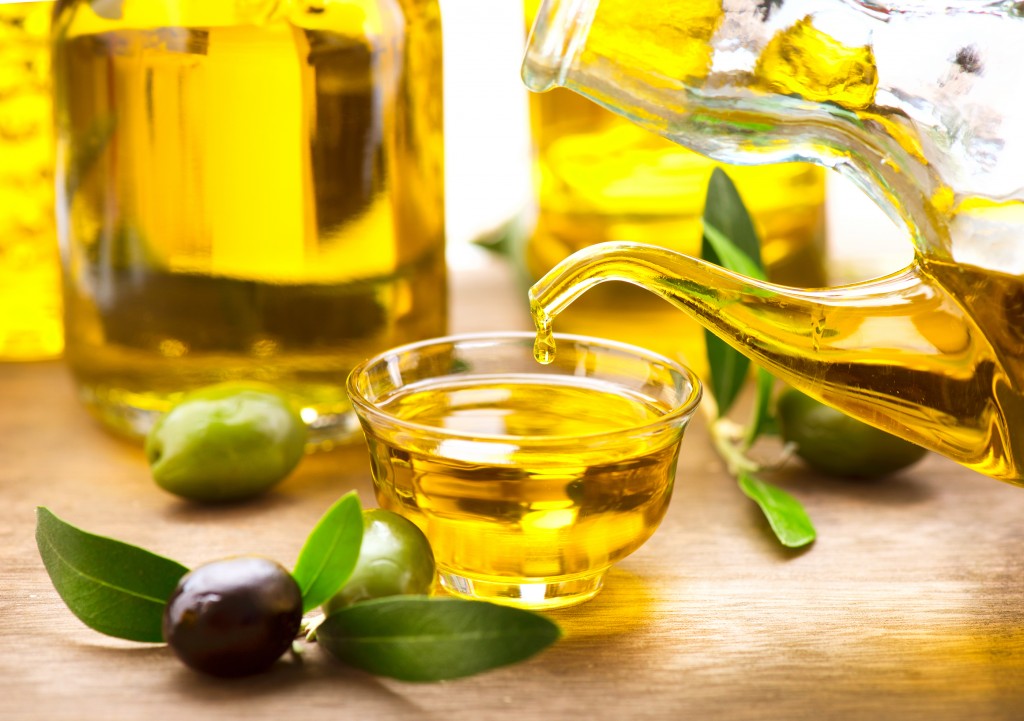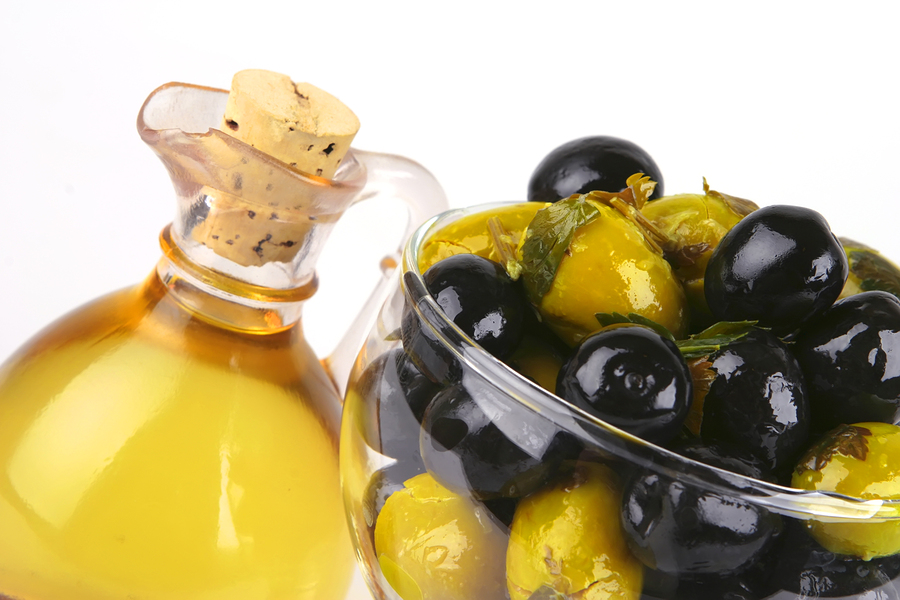- Make It Yourself Lavender Heart-Shaped Bath Bombs!
- 20 Things You Never Knew About “Down There”
- 12 Best Foods For Those Suffering From Arthritis Pain
- 12 Personal Hygiene Mistakes Almost Everyone Makes (Mom Never Told You About #4!)
- 15 Medicinal Plants And Herbs From The Cherokee People
- 12 Mind-Blowing Benefits Of Drinking Coconut Water During Pregnancy
- 12 Outstanding Winter Foods That Won’t Fatten You Up Like A Christmas Turkey
Scientific Proof That Olive Oil Is Healthy For Us

Photo credit: bigstock.com
You may have to follow a low-fat diet but there is no question that our bodies require some fat in order to work properly. The good news is that virgin olive oil is one of the best forms of fat available and should be a part of most people’s daily diet. We have all heard of olive oil, but what is the difference between regular olive oil, virgin olive oil, and extra virgin olive oil. Is it really that healthy for us? And which one is the best choice.
What is the difference in the different types of olive oil?
Olive oil obviously comes from the olive tree and is derived from pressing the olives. Its simple enough, but not all olive oil is the same.
- Extra virgin olive oil – this is the very best you can buy. It is processed using only natural extraction methods and adheres to specific techniques in order to maintain the highest quality taste and smell. It has a high level of phenolic antioxidants and its acidic level can’t be more than 1.5 percent.
- Virgin olive oil – this type is close in quality and taste to extra virgin oil but it is cheaper. It has to have an acidity level that is 2 percent or lower.
- Light olive oil – these types may have used solvents during their extraction process or were diluted with lesser and cheaper kinds of oil. Many of these cheaper olive oils are used to pack items that are said to be packed in olive oil.
Of all types of this special oil, extra virgin is the best to use for cooking and eating and is the one that is credited for the most health benefits. Here are a number of scientific studies that prove why olive oil is so good for us.
1. Alzheimer’s disease
Researchers in Italy conducted tests at the University of Florence showing that the polyphenols that are found in extra virgin olive oil was found to delay or even prevent Alzheimer’s disease. The findings were published in a peer-reviewed journal entitled PLOS One. The clinical trial was performed on mice, and after 8 weeks of being given extra virgin olive oil, the mice in the trial showed no signs of cognitive impairment as opposed to the group that did not get the extra virgin olive oil.
Continue to Page 2

Photo credit: bigstockphoto.com
2. Acute pancreatitis
Acute pancreatitis comes about when the pancreas becomes inflamed without notice. At the University of Granada, located in Spain, researchers conducted studies that showed that “diet plays an important role” in the creation of chronic disease. The hydroxytryrosol and oleic acid that is found in extra virgin olive oil was shown to help protect the onset of acute pancreatitis.
3. Liver problems
Researchers in two universities in Tunisia and Saudi Arabia found that extra virgin olive oil is able to keep the liver from damage to its cells, or oxidative stress. The findings of these studies were published in the BioMed Central.
4. Ulcerative colitis
A study of 25,000 people in Norfolk, England found that the participants who took up to three tablespoons each day of olive oil had a 90% less risk of getting ulcerative colitis. The volunteers were between the ages of 40 to 65. The study was call the European Prospective Investigation into Diet and Cancer and ran from 1993 to 1997.
Continue to Page 3

Photo credit: bigstockphoto.com
5. Anti-inflammatory properties
The common denominator between many serious illnesses is chronic inflammation. The diseases that suffer from this condition include cancer, Alzheimer’s, metabolic syndrome, arthritis, and diabetes. One of the key ingredients in extra virgin olive oil is oleocanthal, a powerful anti-inflammatory. The amount of oleocanthal that is in 3.4 tablespoons of extra virgin olive oil is equal to 10% of an adult dose of ibuprofen used to treat pain.
6. Cardiovascular diseases
The most common causes of death in the world today are stroke and heart disease. One of the main conditions that lead to these diseases is high blood pressure. Tests showed the addition of extra virgin olive oil into the diet lowered the blood pressure numbers for those with elevated pressure readings and eliminated the use of meds to control it by 48%. In addition, extra virgin olive oil has been credited with protecting the LDL cholesterol from oxidative damage, improves the blood vessel linings, and keeps unwanted clots form occurring.
7. Cancer
A published study in the Molecular and Cellular Oncology journal showed the oleocanthal, found in extra virgin olive oil, was able to destroy cancerous cells without harming the healthy cells. The bad cells died within about 30 minutes when before it took up to 24 hours for them to die.
Continue to Page 4

Photo credit: bigstock.com
8. Reduces risk of type 2 diabetes
A study that was recognized by the Diabetes Care journal showed that the inclusion of olive oil in a regular diet lowered the chances of getting type 2 diabetes by around 50 percent. The study ran around 4 years and involved 418 people who were not diabetics at the time. They followed a diet that was wither low fat, the Mediterranean diet with olive oil, and the Mediterranean diet with nuts.
9. Osteoporosis
While olive oil alone cannot prevent osteoporosis, adding it to a healthy diet was found to definitely impact the thickness of the bones of women who were menopausal and most susceptible to getting osteoporosis. A cup of olive oil has 2.2mg of calcium which helps to maintain healthy bones. It also has vital minerals that the body needs to ward off this disease such as Iron, potassium, and sodium.
READ ALSO: 10 Amazing Ways To Use Olive Oil In Skin Care Infographic
10. Stroke prevention
Findings in France took into consideration 7,625 people who were more than 65 years of age and followed them for five years. They consumed high levels of olive oil and at the end of the study, there were only 148 people who suffered a stroke. The percentage of people who used the olive oil enjoyed a 41% lower chance of having a stroke.
References:
































